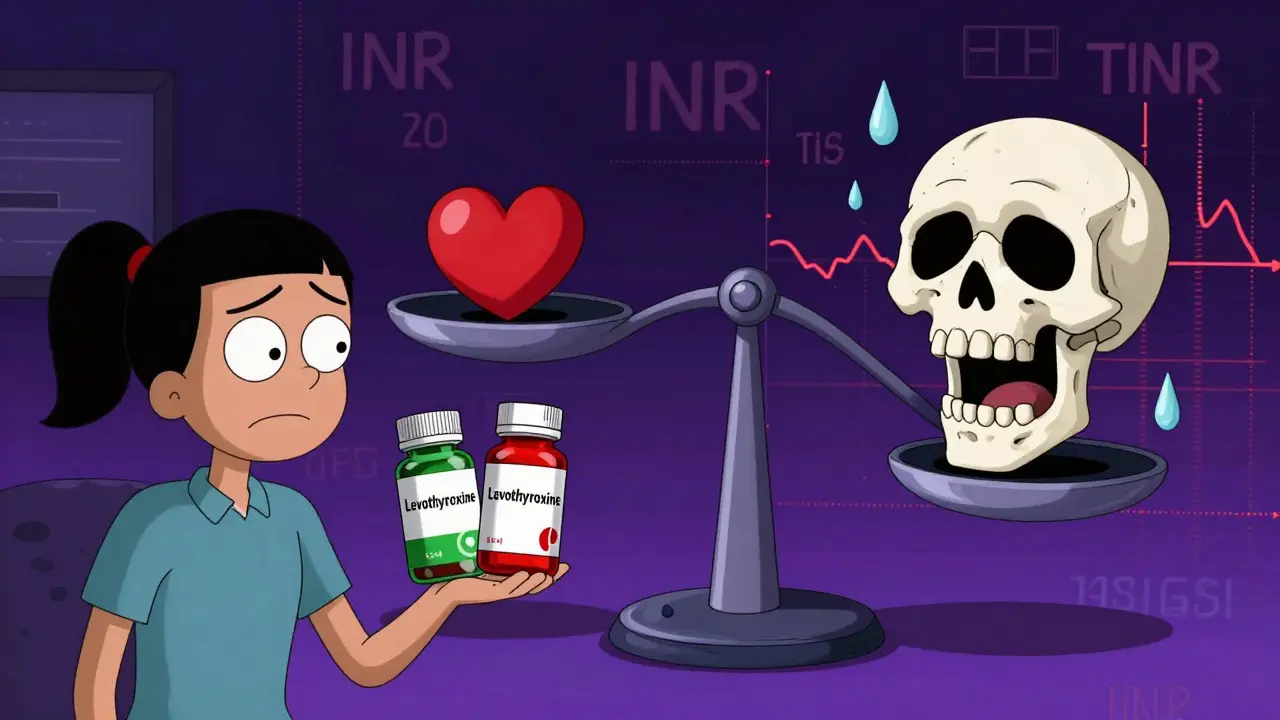Levothyroxine: What It Is, How It Works, and What You Need to Know
When your thyroid doesn’t make enough hormone, levothyroxine, a synthetic version of the thyroid hormone thyroxine (T4) used to replace what your body can’t produce. Also known as synthroid, it’s the go-to treatment for hypothyroidism, a condition where the thyroid gland doesn’t produce enough hormones to keep your metabolism running right. Without it, you might feel tired all the time, gain weight without trying, or struggle with cold sensitivity and brain fog.
Levothyroxine isn’t just a pill—it’s a precision tool. Your doctor doesn’t guess your dose. They check your TSH levels, thyroid-stimulating hormone, which tells the thyroid how hard to work through blood tests, then adjust until you’re in the sweet spot. Too little, and symptoms stick around. Too much, and you risk heart palpitations, bone loss, or anxiety. That’s why switching brands or generics can matter—some people notice differences in how they feel, even when the dose looks the same on paper. The FDA says generics are equivalent, but real-world reports suggest consistency matters more than we thought.
People on levothyroxine often wonder about food, supplements, or other meds interfering. Coffee, calcium, iron, and even soy can block absorption if taken at the same time. Most doctors recommend taking it on an empty stomach, 30 to 60 minutes before breakfast. And if you’re pregnant, your dose will likely go up—your body needs more thyroid hormone to support the baby. It’s not just about feeling better; it’s about keeping your whole system balanced.
You’ll find posts here that dig into how levothyroxine fits with other drugs, what to watch for when switching brands, and how thyroid health connects to everything from hair loss to mood. Some people manage it perfectly for years. Others fight with side effects, inconsistent results, or confusion over lab numbers. This collection gives you the real talk—not marketing, not theory, but what actually happens when you take this pill every day.

